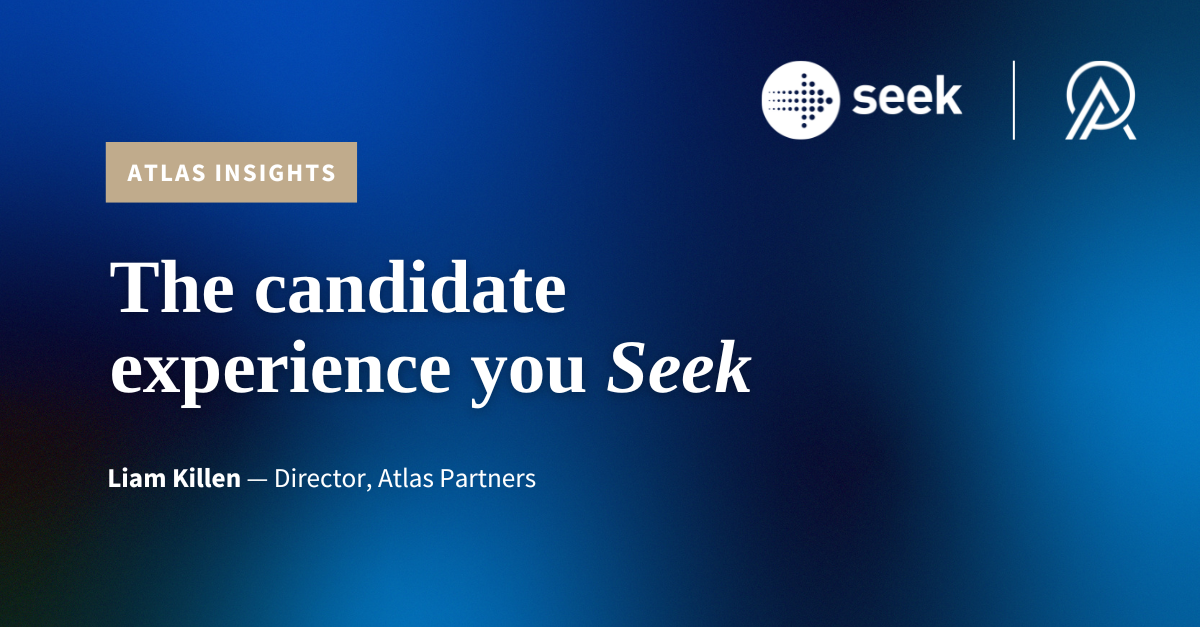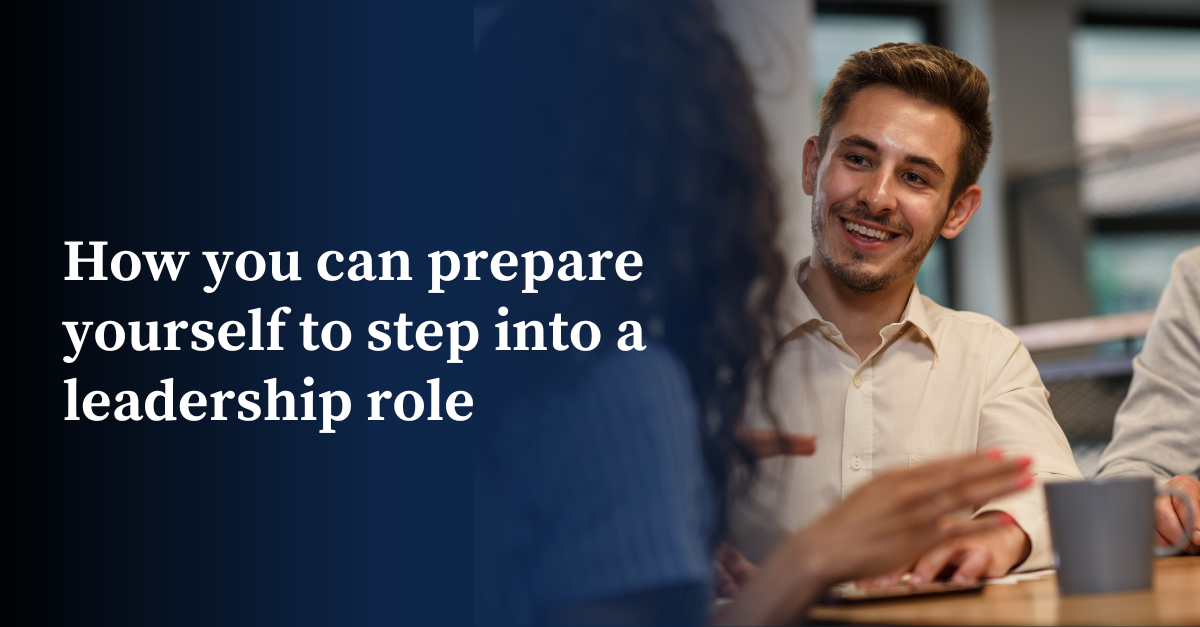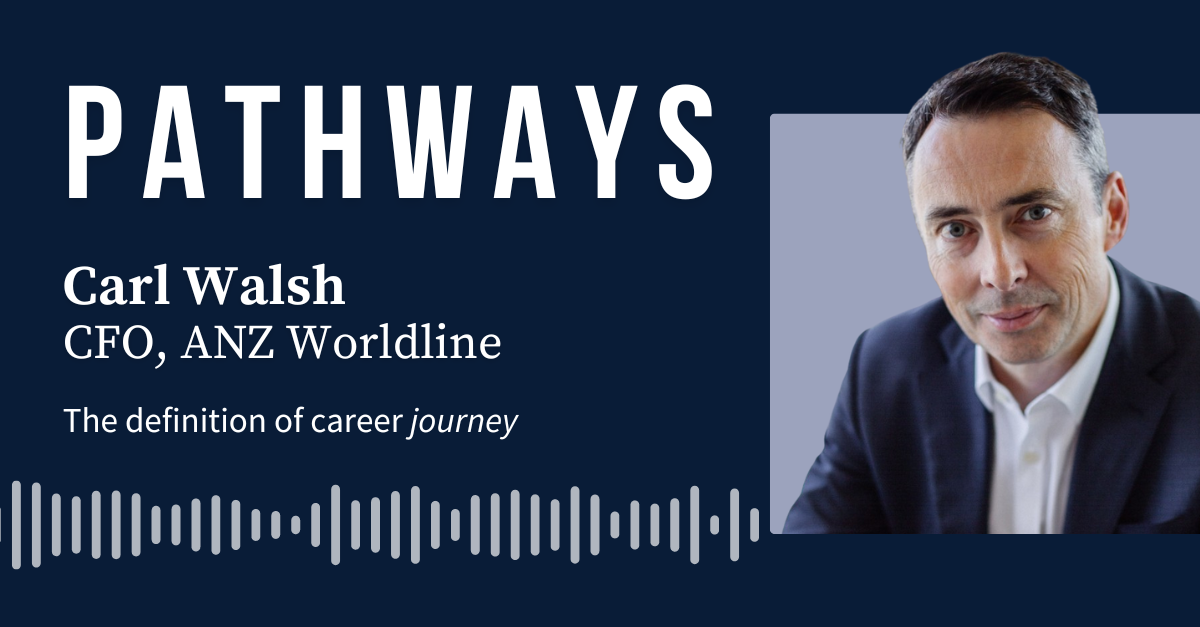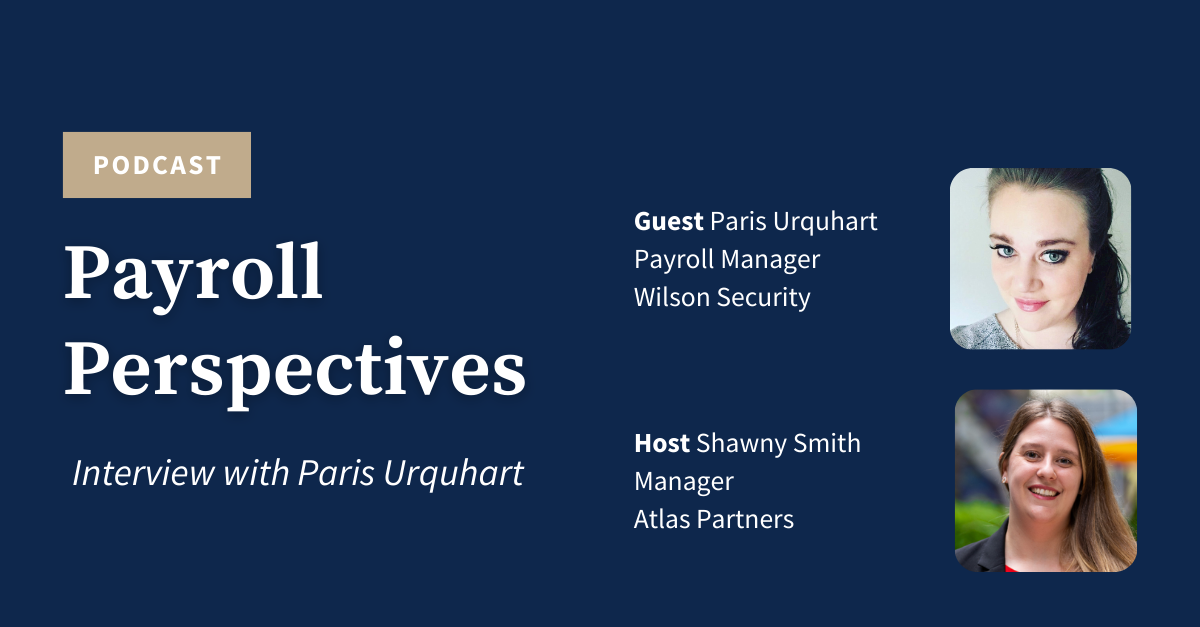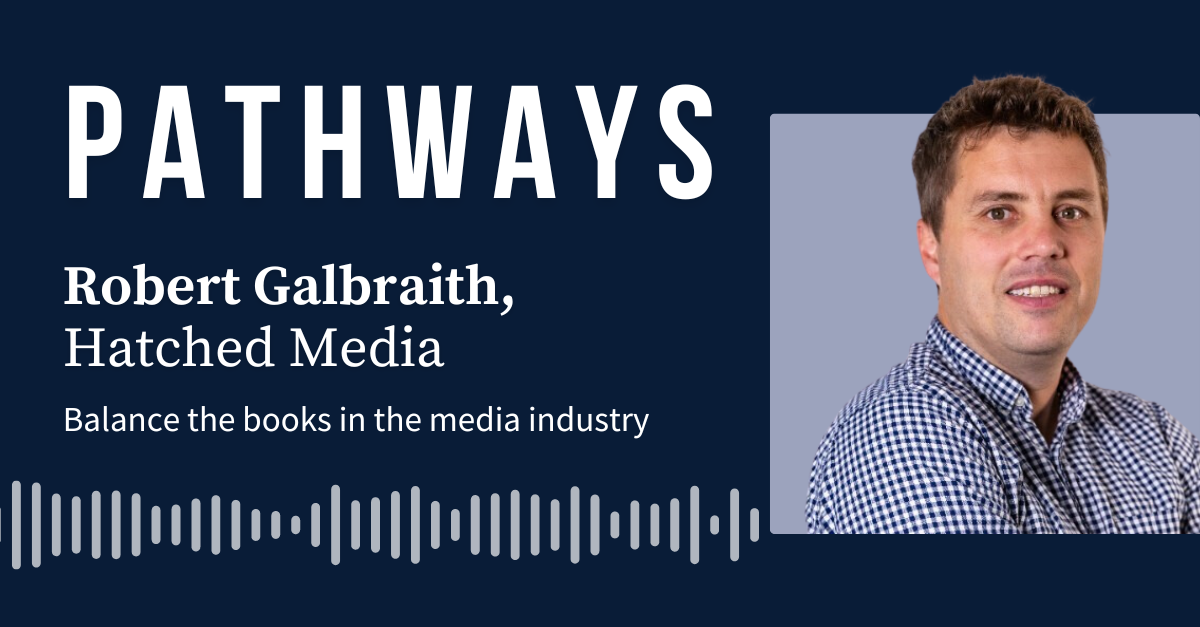
Pathways — Robert Galbraith, Hatched Media
Cutting his teeth at a Big-4, diving into a stint in London, and developing a killer skillset across a variety of roles, is what Robert Galbraith credits his career success to.
It’s this diverse and rugged career terrain that has led him to the creative world of the media industry, taking on the role as Chief Financial Officer at owner-led Hatched Media. Rob joined Atlas Director, Liam Killen for our Pathways podcast series to chat finance challenges in the media industry, life at an AFR’s Best Places to Work company and the importance of networks.
Rob, thank you for joining us. Firstly, could you talk us through your pathway to CFO? What was that journey like for you?
I started my career at KPMG in audit, pursuing a CA. I had some good times and made a lot of friends, but soon realised that probably wasn’t going to be my long-term career. So, I decided to move to London and tried a couple of different jobs. I worked at Santander but was moved on from there. My mates can attest to that happening when I was living with them. I then moved on to a couple of contract opportunities and worked at Credit Suisse for about two and a half years in their risk management team, which was a fantastic experience and gave me a good grounding in the corporate world.
I met my wife while living overseas and decided to move back to Melbourne. When I got back, my goal wasn’t to become a CFO straight away, or even a CFO at all, it was just to get a job. So, I joined Coles, which was really good. I worked in the FP&A area there. Essentially, after leaving KPMG, I had several roles across different areas, which gave me a well-rounded skill set. This eventually led me to the media world at Dentsu.
I worked at Dentsu Aegis, which later became Dentsu Incorporated. I worked across many media brands like Carat, iProspect, and Vizeum, gaining a good understanding across all areas of finance. That’s when I started to think that I could be a CFO. The skills I learned there, particularly interacting with people, were key. Media is both simple and complex at the same time. One of the key aspects is understanding the technology and connecting with diverse ranges of people.
To get a CFO role in an owner-led organisation, I started networking with people outside of Dentsu and making connections. That led to a job with Hatched Media, which has been fantastic over the last year.
What are some of the specific finance challenges in the media industry that you were unaware of before starting?
The media industry operates using older technology from a bookings and billings perspective, and mostly uses the same applications. For instance, one TV ad is one spot. So, a big client is going to book a significant number of spots, and you have to reconcile every single one. Invoicing from all sides must be correct, as it is everywhere, but these individual spots add up, and there are often mistakes.
The industry has been predominantly dominated by some big players, but that has slowly changed in Australia with several independent agencies emerging. Owner-led organisations are starting to compete with the bigger agencies. The challenges smaller organisations face are high entry costs, so some of the bigger organisations help them out, which is great for the industry. We’ve been partnered with Omnicom, who have been fantastic for the business for three and a bit years, and I’ve just led the in-housing of our bookings and media system. But the investment we’ve had to make is quite significant, and you have to reach a certain size for it to become viable. Partnering with a bigger organisation has allowed us to do that, and they’ve heavily invested in our business, which has been really good.
But we’re onto the next phase of growth, and we went live in March with our new systems. It’s been a good process, with a few hiccups and challenges, but the rest of the organisation and our partners have been fantastic in getting that off the ground. So, having a strong team around you is really key to overcoming those challenges.
Moving away from Dentsu, how have you found the comparisons between that large, complex corporate and Hatched?
Yeah, so I guess the sense of responsibility at both organisations is similar, but being the custodian for the owner’s operations and their money at Hatched brings a different kind of responsibility. Our owner is fantastic. He now runs his own business, Zitcha, a retail media platform. The difference between Hatched and anywhere else I’ve worked before is that the leadership team really cares about the staff and wants to see them succeed, not only in their roles but also in their personal lives. We have a number of programs that we run, and we have a really high staff retention rate. The industry doesn’t have a high retention rate, especially in the last three years, partly due to COVID. But even through that period, we’ve continued to improve it, thanks to some of the initiatives we’ve put in place.
Hatched was just recognised as one of the top ten in their category for the AFR’s Best Places to Work, a regular entry for a number of years now. What does culture mean to you, and how important has it become to you on your journey?
Having happier staff and people who are on the journey with you is really important. Even for myself, I want to go to work and enjoy myself. I don’t want to go to work, come home, and not be a nice person to my kids and my wife. So, creating an environment where staff can thrive and succeed is really important.
We do have quite a high staff turnover ratio for our revenue, but we have a high success rate in retaining clients and staff and growing those clients. So, when you invest a dollar, you get that return and more back. We have a couple of committees, including a diversity and inclusion committee, a green team that comes up with initiatives like My Net Zero, where we’ve offset our emissions with carbon certificates. We also have a social committee that organises great events. They’ve just started a monthly gym class with different gym providers. I didn’t go to the first one, but I probably should go to the second one because I need the exercise. We’ve implemented a new parental leave policy, providing coaching sessions throughout the year for staff who choose to take advantage of them, helping them re-enter the workforce after having a baby. We also pay twelve months of superannuation on top of the twelve weeks of paid parental leave. These initiatives came about through direct consultation and discussions with our staff. We have quite a large staff base, between 20 and 35, and those were the staff we consulted and worked with to implement these programs.
Who supported your career the most, and how important is your network as well?
Yeah, so I guess I’ve had a few different mentors. My dad has always been one that I’ve bounced things off and talked to about my career. He’s had a long career as a partner at a law firm, so he knows the Melbourne corporate landscape well, and he’s been really important. When I started at KPMG, I made some great friends there, and although they’re all in different industries, they’ve had a significant effect on me as well.
During my time at Dentsu, there were a couple of people I still catch up with and bounce ideas off, and who I can pick up the phone and talk to for advice. There’s one guy I talk to regularly who knows the industry well, and another guy who is a 25-year media veteran and a CFO at another independent agency. I talk to him when I’m in Sydney. He’s helped me with how to go about in-housing the media systems as well. So, don’t be afraid to ask questions because there are a lot of people who are willing to help.
What advice would you provide to aspiring CFOs, those who want to move towards that CFO or even CEO role at some point in the future?
Some of the biggest things I did were making sure to put my hand up for things that I might not have been comfortable with, within reason. So, even if you have your day job, try to create space within that job to do a few other things. There are various tech and AI developments coming in which may or may not take over some aspects of the role. But don’t be afraid to try those things, suggest improvements, and make them. If you’re trying to test something or improve it, you don’t need permission to do that. Most places will be pretty happy that you’ve taken the initiative and done something.
Another thing is to make sure you understand the businesses you’re working in. If you’ve been within a corporate function, try to understand that running an FP&A process at a high level is fine, and you’ll get the numbers you want. But try to understand how the business makes money by getting into the details as well. Sit with the strategy people, sit with the planners, the staff who are doing the grunt work, and just understand what they’re going through. You can add a lot of value by cutting out some of the work they have to do and some of the frustrations they have. Understanding the business, the people within it, and the industry is crucial. We have a lot of retail clients, so I go to retail stores to see what the end-to-end sales process is like. Making sure you understand the business and the people within it is essential.
Great advice. Well, thank you so much, Rob, for joining us. I really appreciate you talking us through your pathway to CFO.
No problem.

